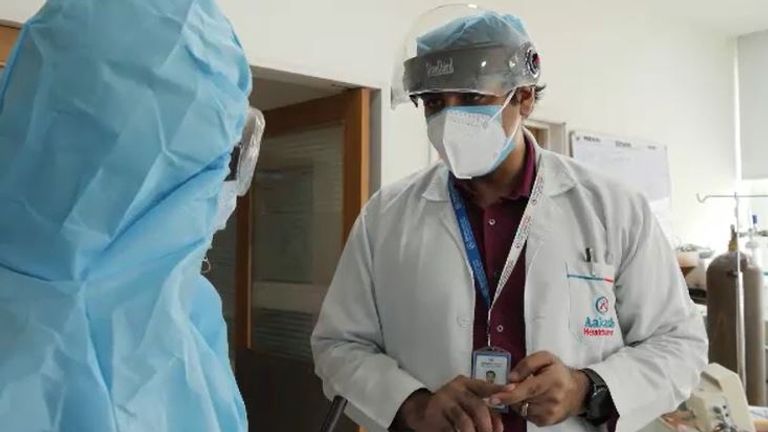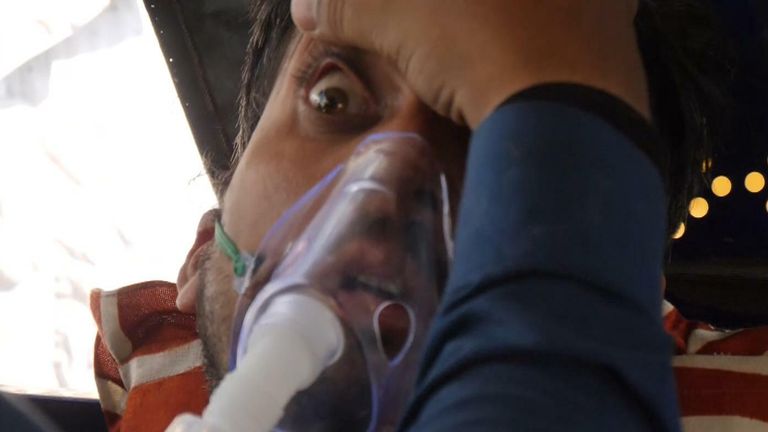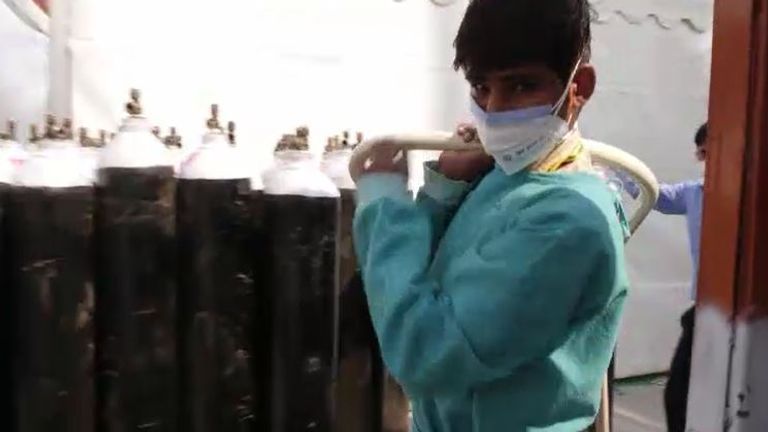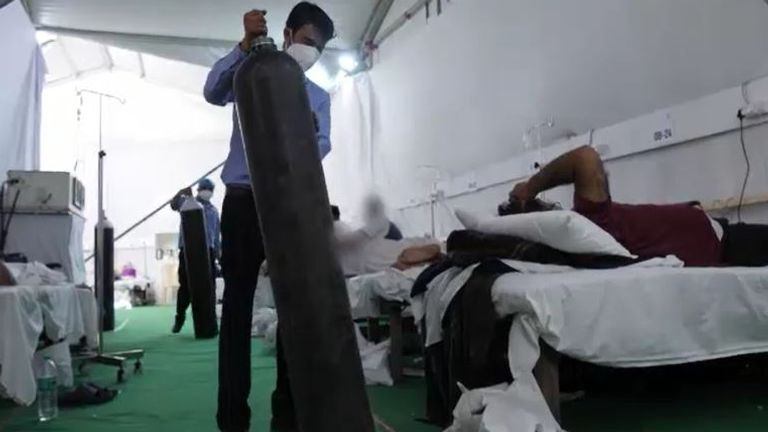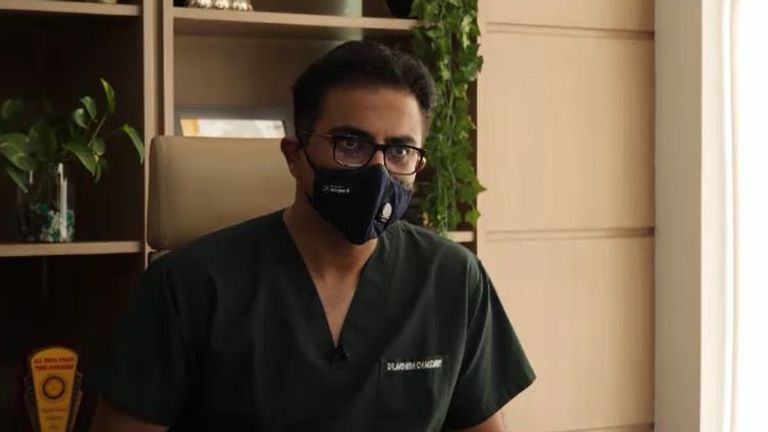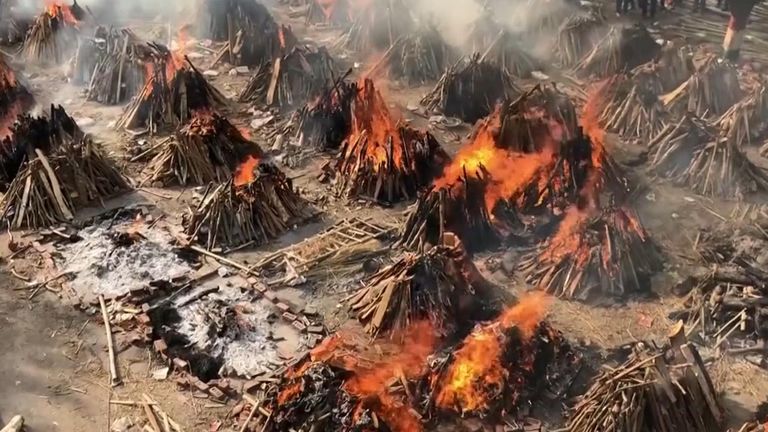India’s hospitals are already full to bursting, but doctors in Delhi are warning there could be even worse to come.
Hard to imagine just how much worse it could get when the country’s citizens are begging in the street for air; people are collapsing and dying on hospital doorsteps and administrators are saying oxygen is like gold right now.
But while the government was busy urging the country not to panic and international partners were organising aid flights transporting oxygen supplies, the doctors at the sharp end were telling us they’re bracing themselves for a torrid fortnight ahead.
“The situation is critical right now. This pandemic is the worst we have ever seen until now. The next two weeks are going to be hell for us,” Dr Shaarang Sachdev from the Aakash Healthcare Super Speciality Hospital told us.
He led us into his emergency room, which is normally equipped for three patients, but which now regularly has seven or eight.
“That woman should be in ICU now,” he said, pointing to a young woman on a ventilator. “She’s been here for two days because there’s no beds in intensive care.”
The nurses and doctors are often working back to back shifts. Some have relatives with COVID in the same hospital where they’re working.
“We don’t even have time to go and visit them,” said Dr Sachdev. They’re exhausted, physically and emotionally – and many are angry.
The hospital’s managing director, Dr Aashish Chaudhry, said he woke several times a night every night to check on oxygen supplies, to source it, to hunt down supplies.
“I’m buying oxygen at the rate of gold right now,” he said.
“The situation has come to that level – and the black marketing is going on. Oxygen was like 20-22 rupees per kilogram and today its 50 rupees per kilogram.
“Remdesivir injections, which is normally like 4,000 rupees, even 2,000 rupees… people are buying at 40,000 rupees… This should not be happening.”
But they beg, barter and buy what they can to keep their patients alive and do what they can to keep them breathing.
They’ve extended their bed capacity by looking after sick coronavirus patients in a tented village in the hospital grounds. There’s row after row of sick patients and most are on oxygen.
Professor Piush Kant Dixit was struggling with every word he spoke but wanted to tell us how worried he is about his oxygen supply being cut off.
He already fears they’re rationing supplies to eke them out, although the hospital strenuously denied this to us.
But the fears and concerns of patients who are dependent on every breath is easy to understand when there’s such an acute shortage in the city.
“Sometimes this is working,” said Prof Dixit, pointing to his oxygen tank standing next to his put-up bed.
“Sometimes this other cylinder is finishing (he gestures towards the cylinder nearby)… so they are lowering the oxygen level… although it is needed – like it should be more. So, this is the problem.”
India’s terrible statistics continue on an upward trajectory, with yet more global records set on the increase in the number of daily COVID cases.
It is now the second most-affected country in the world by active cases and the fourth by deaths (more than 190,000), with worries that the number of fatalities is being grossly underreported.
The trauma, the panic, the fear is taking its toll on its citizens, its faltering health system and its health workers.
“I’ve never seen so many mortalities in our ICU,” said Dr Piush Girdar, who works in critical care.
“I get maybe 50 calls a day asking for drugs, beds, cylinders… we don’t have anything available and patients are dying.”

